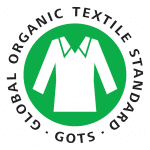5 Trusted Certifications, and Why We Need Them
By Melanie Manard of The Conscious Insider
Why Do We Need Reliable Sustainable Certifications?
In recent years consumers have shifted their habits. The human impacts on the environment are nowadays well known and 66% of consumers are willing to pay more for an eco-friendly or ethical product.
Many brands understand this change and address it by using terms such as “clean”, “natural”, or “green” as a marketing tactic to attract customers.
Unfortunately, those claims are sometimes false or misleading. It’s called greenwashing.
This practice can create confusion among consumers and handicap the brands that are really making a difference for the environment.
In September 2022, the New Harvard University published the study Three Shade of Greenwashing which examines greenwashing in Europe.
The study reveals that the largest most polluting car brands, airlines, and oil and gas companies in Europe are using social media such as Instagram, Tiktok, or Facebook to strategically position themselves as green, innovative, or charitable brands.

With so many brands claiming to be “green” or “sustainable,” it can be difficult to discern which ones are eco-friendly. This is where sustainable certifications play an important role.
Certification programs provide much-needed transparency and accountability, helping consumers make informed choices about the products they buy. These standards are guaranteed by independent third-party organizations.
Obtaining a green certification is proof for customers and clients that a business implements durable and conscious processes, or significantly reduces its impact on the environment. It’s an important tool to fight greenwashing.
Note that some brands are ethical and eco-friendly but cannot afford to register for sustainable certifications. Some institutions charge up to $50,000 per year to be certified.
Today, a variety of eco-friendly certifications exist. Some focus on the raw materials of a product, others on its toxicity or the worker’s conditions.
In this article, we study the most reputable certifications for sustainable and ethical shopping and help you navigate through them.
5 Sustainable Certifications Explained for Conscious Shopping

Global Organic Textile Standard (GOTS) – The Organic Certification
Established in 2006, The Global Organic Textile Standard (GOTS) is the leading sustainable certification for organic fibers. It covers the production process from harvesting and manufacturing to labeling and ensures the implementation of rigorous environmental and social standards.
GOTS-certified textiles are produced in a way that minimizes negative impacts on the environment and workers. The certification bans the use of hazardous chemicals such as pesticides, herbicides, and GMOs, and ensures ethical safe working conditions.
Backed by independent third-party certification, the Global Organic Textile Standard is becoming the gold standard for organic sustainable, and ethical textile production.

Fair Trade – Empower Local Communities
Fair Trade is an international label that provides ethical practices to support local communities in developing countries.
It ensures safe working conditions, fair prices, and long-term direct trading relationships with marginalized farmers and workers. Fair Trade products are available in over 145 countries around the world. Since 1958 and the first fair Trade shop, the organization has connected more than 1.8m farmers and workers globally.
The Fairtrade certification is your guarantee that your bananas, cocoa, coffee, or sugar have been produced ethically and sustainably.

Made Safe – Non-toxic Products
The MADE SAFE certification was founded in 2014 by a non-profit organization called Nontoxic Certified. It’s a safety certification that guarantees the non-toxicity of a product.
An independent entity analyses the ingredients, the manufacturing processes, and the end-of-life disposal methods of a product and certifies it’s not harmful to the environment or human health. 6500 hazardous ingredients are prohibited from use in MADE SAFE Certified products. The certification applies to clothing, cosmetics, personal care, and even pet items.
The MADE SAFE certification is important because it gives consumers peace of mind that they are not buying products that contain harmful chemicals or toxins.

Certified B Corporation – Social Performance
Created in 2006, the B Corp movement is a powerful force and counts nowadays over 5,300 certified B Corps in over 83 countries. B corporations make profit and social mission their main goal.
Businesses that receive B Corp certification have met rigorous standards of social and environmental performance, legal accountability, and public transparency. The certification is administered by the non-profit B Lab. In order to be certified, a business must undergo a thorough evaluation of its practices and policies with its workers, customers, community, and the environment. Certified B Corps are required to recertify every three years and report on their progress in meeting their social and environmental goals.
Moreover, B Corps are part of a larger community of like-minded businesses, which provides opportunities for networking, collaboration, and collective action on issues of common concern
B corp standard of transparency and social responsibility appeal to both engaged employees and conscious consumers.

The Forest Stewardship Council, Sustainable Forests
Founded in 1994, The Forest Stewardship Council (FSC) is an international, independent, not-for-profit organization that promotes the responsible management of the world’s forests. It was created to limit deforestation and its negative impact on the environment.
FSC-certified products can be traced back to their source, ensuring that they are from a well-managed forest.
In addition, the FSC certification helps to ensure that forest workers are provided with decent working conditions and that indigenous communities are consulted and involved in decision-making about the management of their traditional lands.
For all these reasons, the FSC certification is an important tool in promoting responsible forest management.

About the Author
Melanie Manard is the founder of The Conscious Insider, a digital platform for sustainable and ethical lifestyle. You can usually find her reading, cooking or riding her bike.